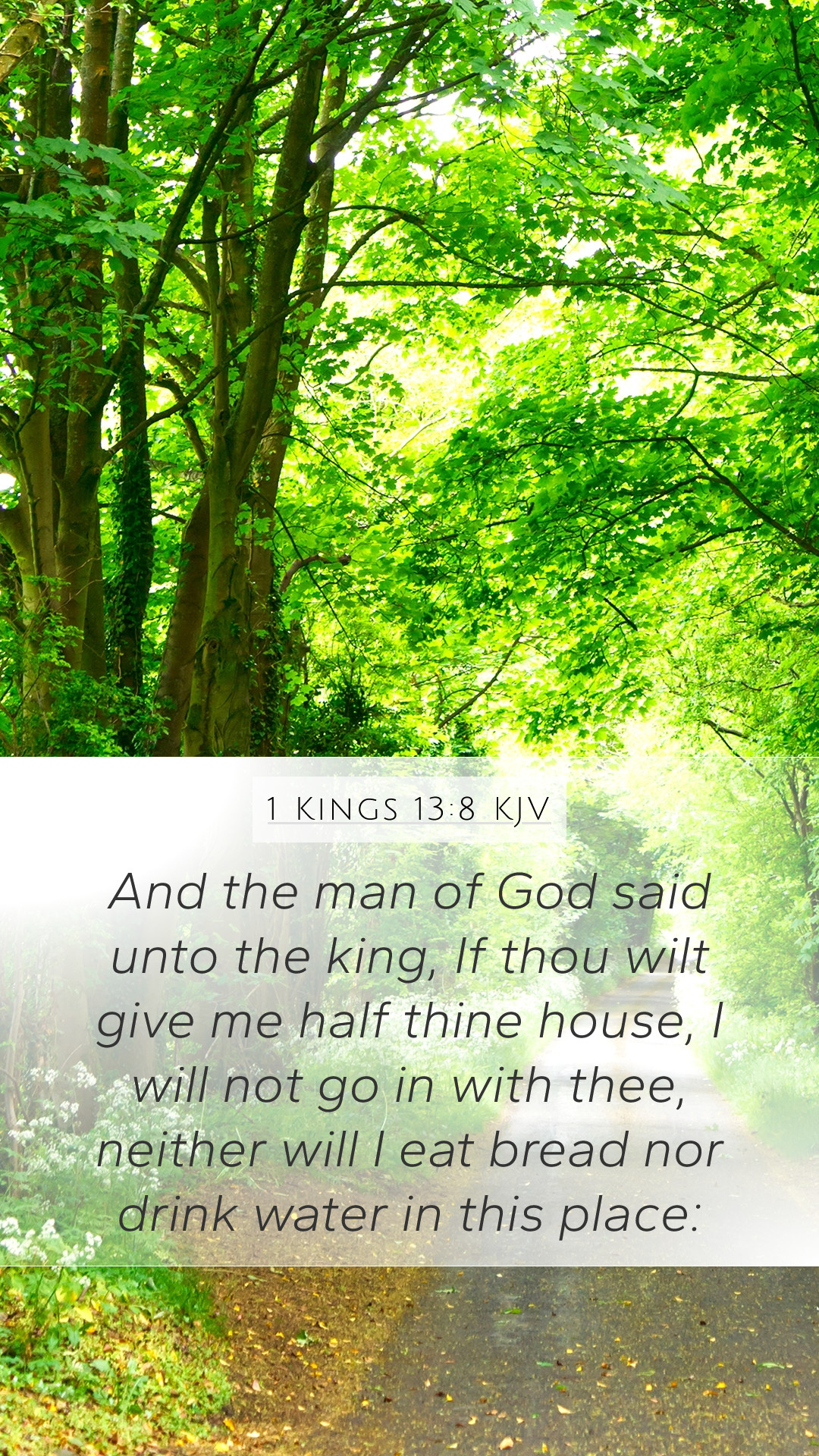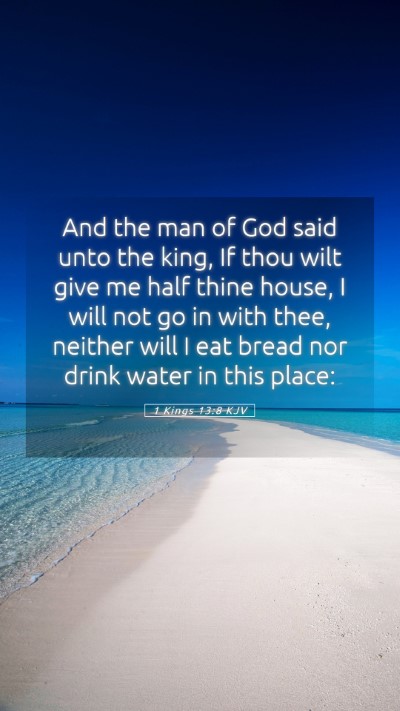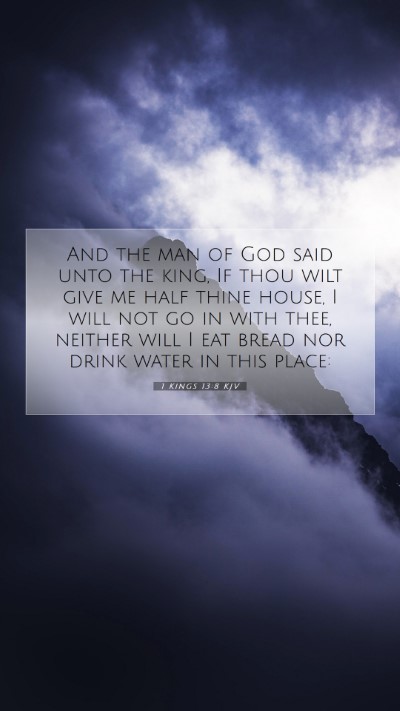Bible Verse Explanation: 1 Kings 13:8
Bible Verse: 1 Kings 13:8 - "And the man of God said unto the king, If thou wilt give me half thine house, I will not go in with thee, neither will I eat bread nor drink water in this place."
Overview of 1 Kings 13:8
This verse is a part of one of the most intriguing stories in the Old Testament, which involves a prophet sent from Judah to deliver a message from God to King Jeroboam. The refusal to accept food or drink in the king's presence signifies the prophet's unwavering obedience to God's command and serves as a critical commentary on the importance of adhering to divine instructions over earthly temptations.
Insights from Commentaries
Matthew Henry's Commentary
Matthew Henry points out that the man of God demonstrates integrity and faithfulness in his mission. His statement reflects his dedication to God's command, emphasizing that he will not be swayed by worldly powers or rewards. Henry also notes the symbolic act of rejecting the king's offer as a lesson against associating with corrupt systems.
Albert Barnes' Notes on the Bible
Albert Barnes highlights that the prophet is setting a precedent for distinguishing between divine order and personal gain. By refusing the king's offer, the prophet shows that he recognizes the authority of God as higher than any earthly throne or wealth. Barnes elaborates on how this act serves to reinforce the integrity of prophethood and the seriousness of adhering to God's instructions.
Adam Clarke's Commentary
Adam Clarke remarks that the refusal extends beyond just food and drink; it illustrates a deeper theological message regarding the separation of truth from falsehood. Clarke interprets this as a metaphor for spiritual nourishment that comes solely from obedience to God’s directive. The prophet’s stance acts as a warning against the allure of materialism or power, which can lead one away from God's purposes.
Meaning and Application
The refusal of the prophet to partake in the king's hospitality serves as a powerful reminder of maintaining spiritual integrity. In today's context, this can translate into the importance of not compromising one’s values for the sake of social or political acceptance. For Bible study groups, this verse encourages discussions on the themes of loyalty to God, integrity, and the dangers of temptation.
Cross References
- 1 Kings 13:9 - "For so was it charged me by the word of the Lord, saying, Eat no bread, nor drink water, nor turn again by the same way that thou camest."
- Jeremiah 23:16 - A warning against listening to false prophets.
- Matthew 4:4 - Jesus emphasizes living by God's word rather than physical sustenance.
Conclusion
The events of 1 Kings 13:8 serve to illustrate profound principles about obedience, divine calling, and the necessity of discernment in the face of worldly distractions. This narrative can be used as a rich point of reflection in Bible study materials, allowing for deeper understanding of Scripture and how to apply biblical truths to daily life.


